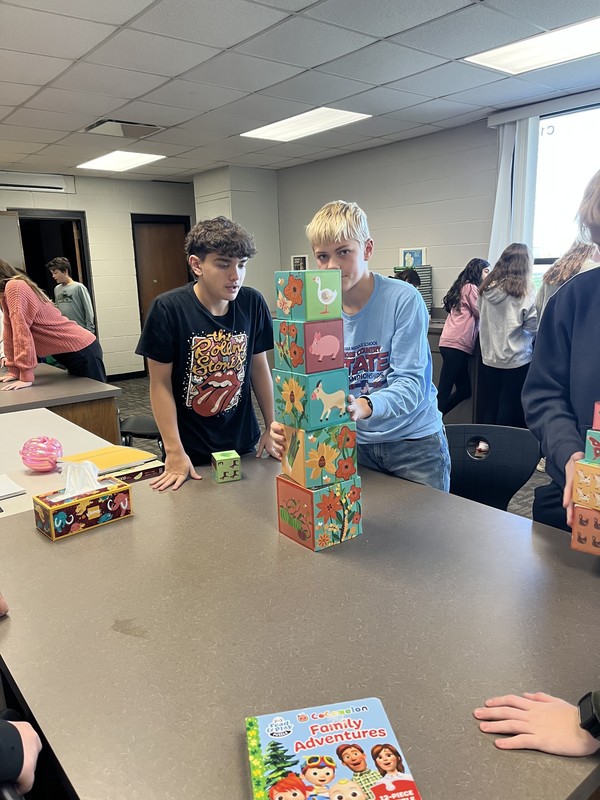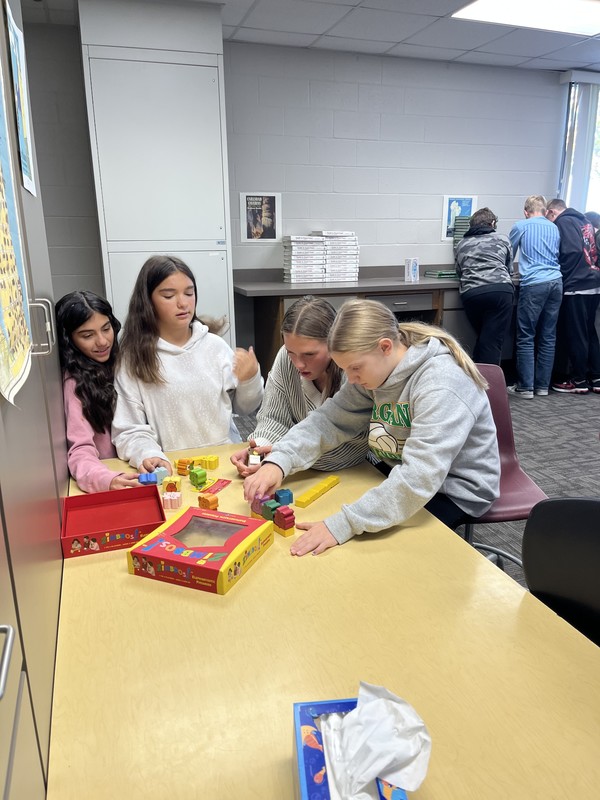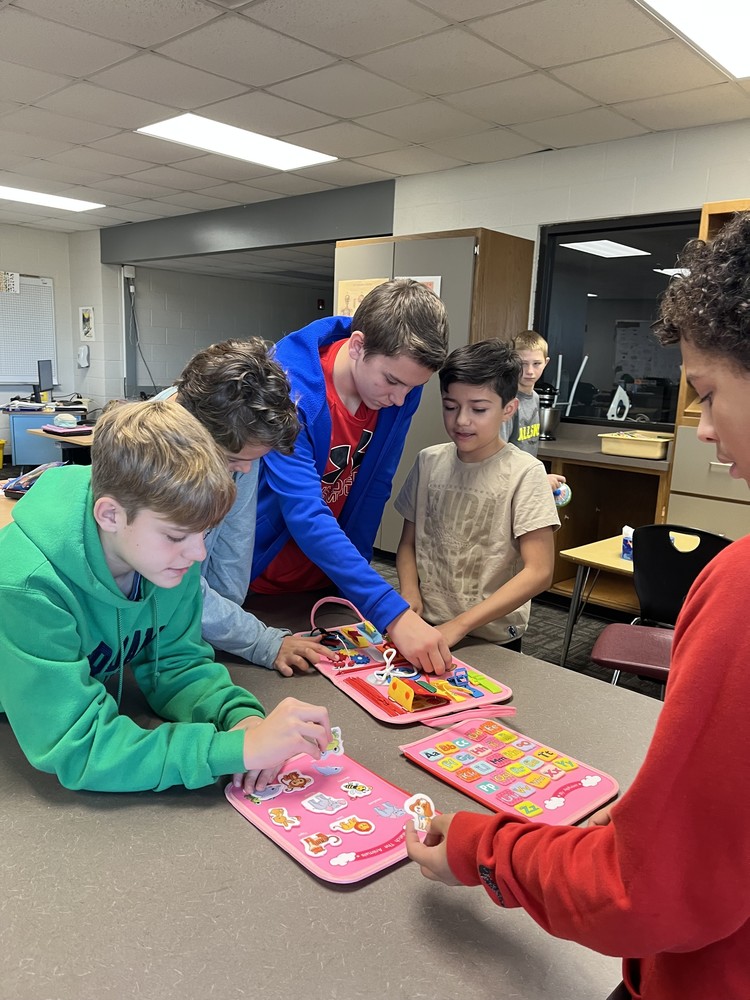Seventh-grade students in Mrs. Michelle Schmidt’s Family and Consumer Sciences (FACS) classes recently completed a unit on child development, focusing on the role of play in helping young children grow physically, socially, and intellectually. As part of the study, students examined how different forms of play contribute to motor skill and language development. From hands-on activities to group discussions, students were able to explore what it takes to support a child’s growth through purposeful and engaging play.
Mrs. Schmidt noted how invested her students became in the topic, commenting, “The students really dove into the work and enjoyed exploring how children learn through play. They were eager to connect what they learned to their own experiences and observations of younger kids.” The project not only helped students understand the stages of development but also gave them a glimpse into the thoughtful planning that goes into caring for and educating children.
When reflecting on the importance of play, Mrs. Schmidt added, “Play is a child’s work—it’s how they learn to communicate, solve problems, and build coordination. Activities as simple as stacking blocks or playing pretend help children strengthen fine and gross motor skills while also developing creativity and language.” Through this unit, students discovered that play is far more than entertainment—it’s a key foundation for lifelong learning and healthy development.


(Photo Credit: Michelle Schmidt)

